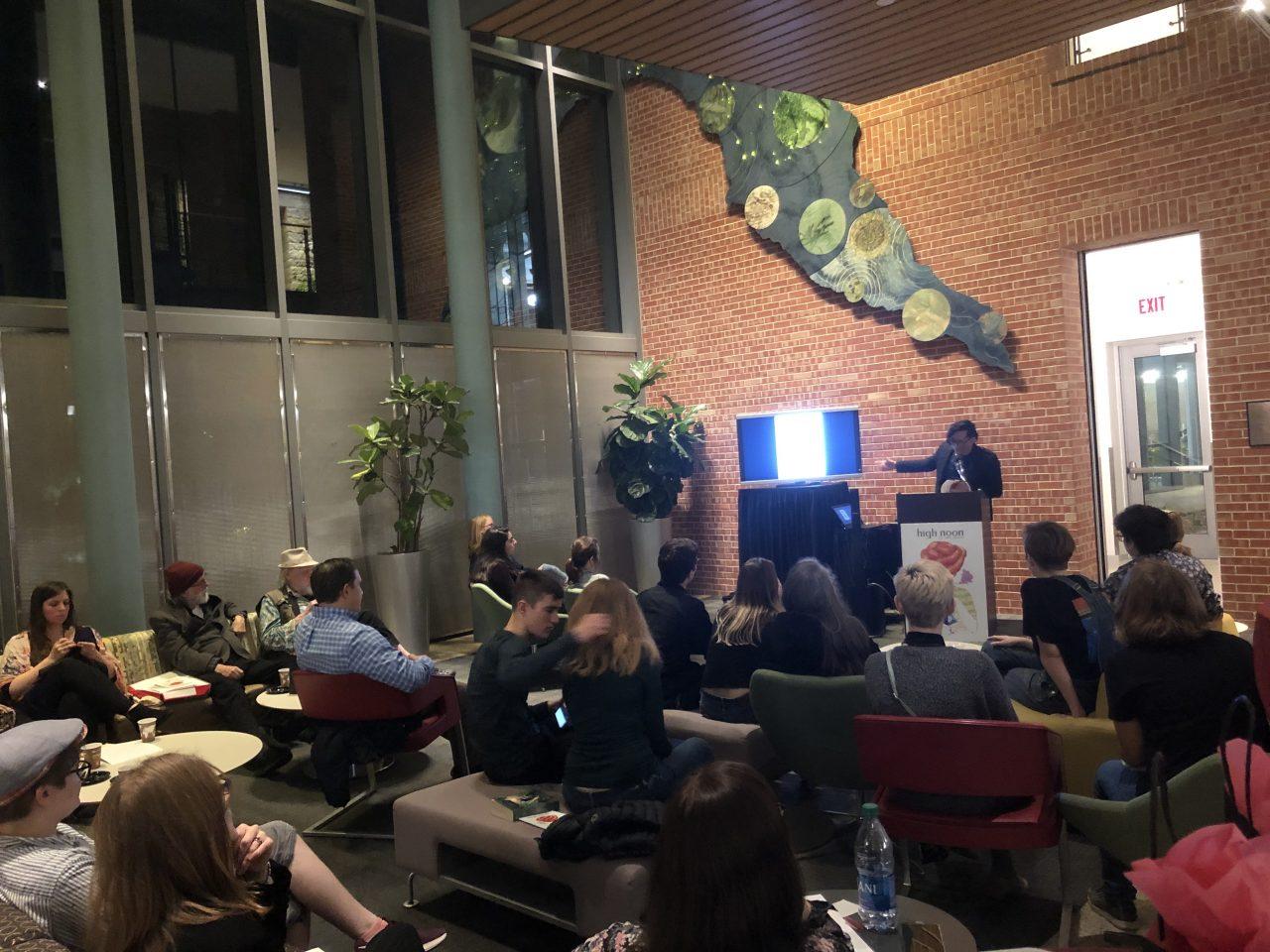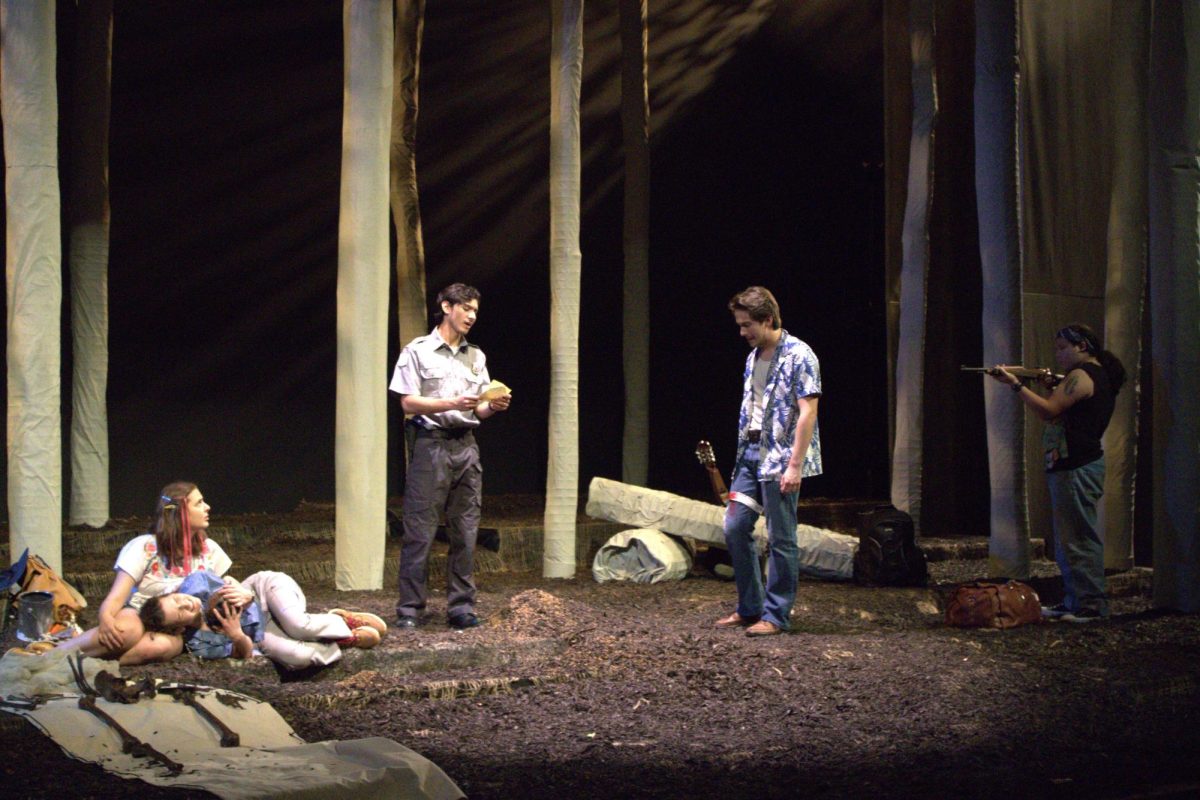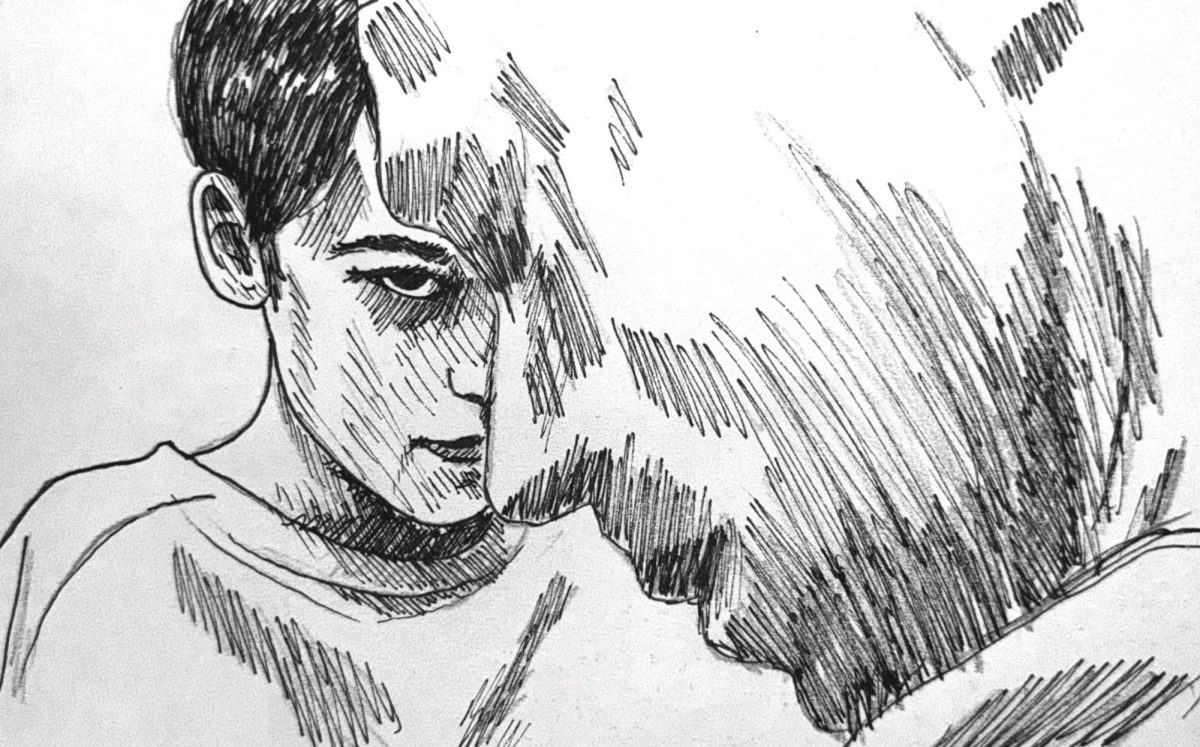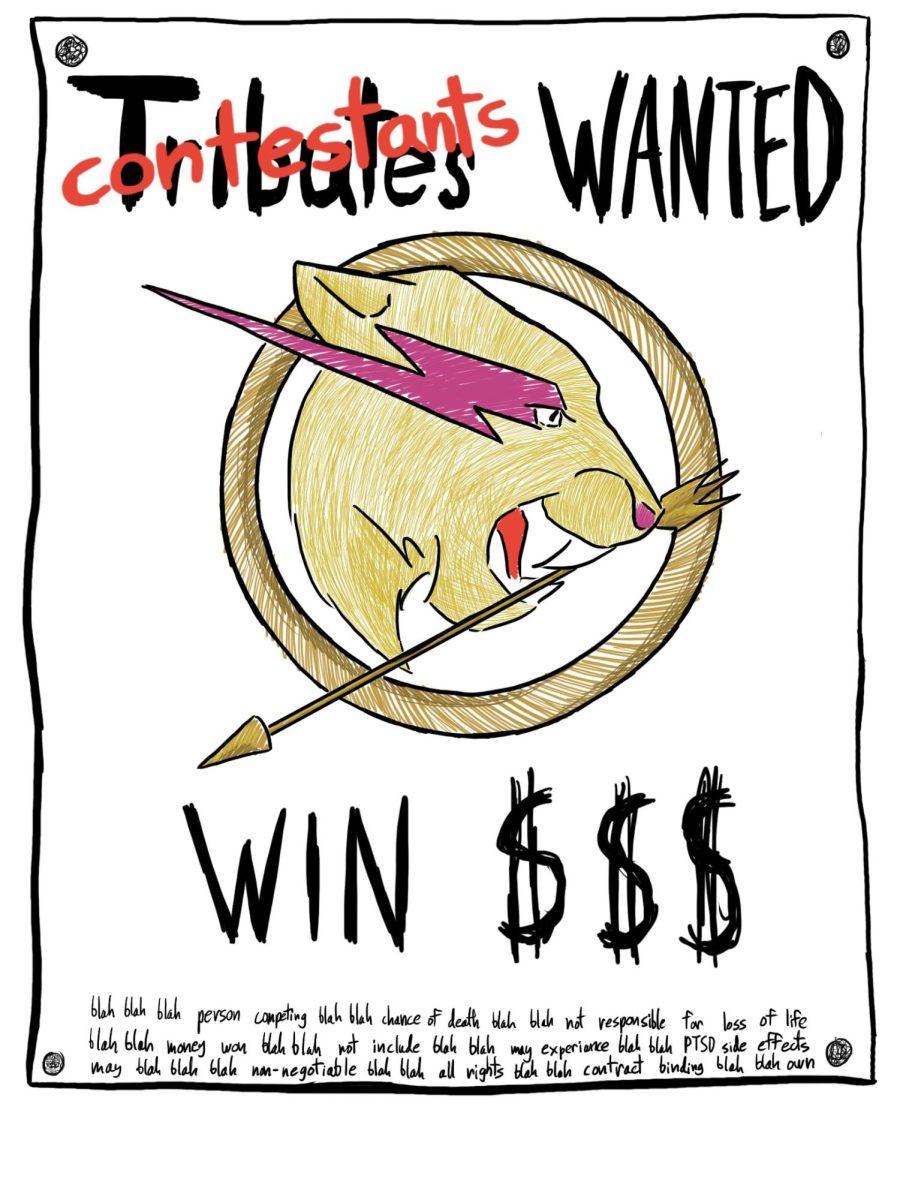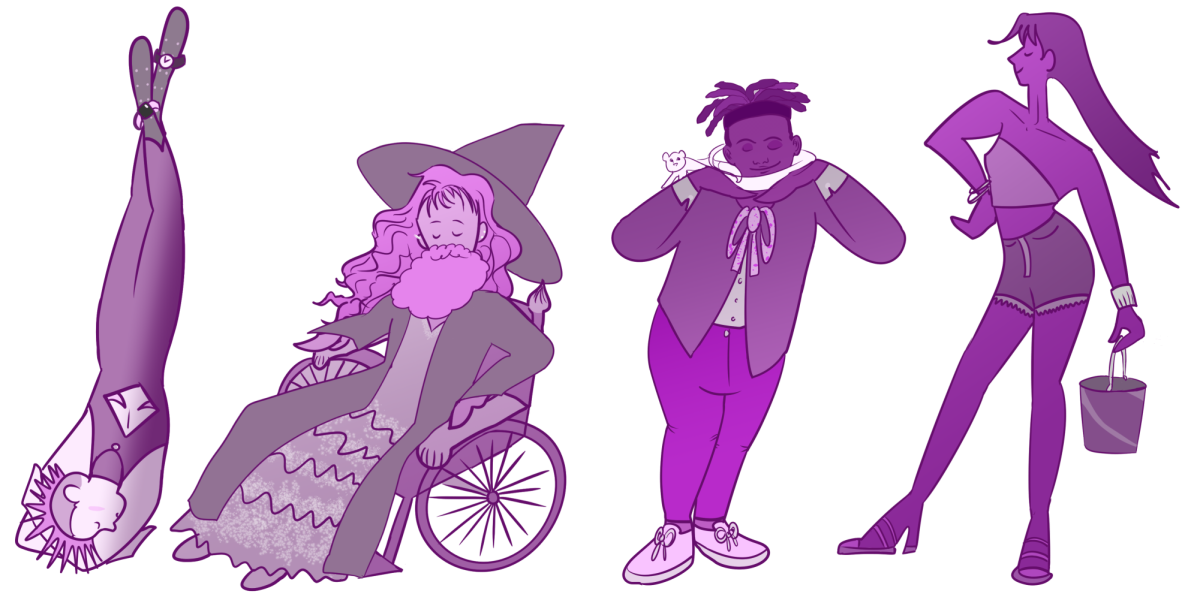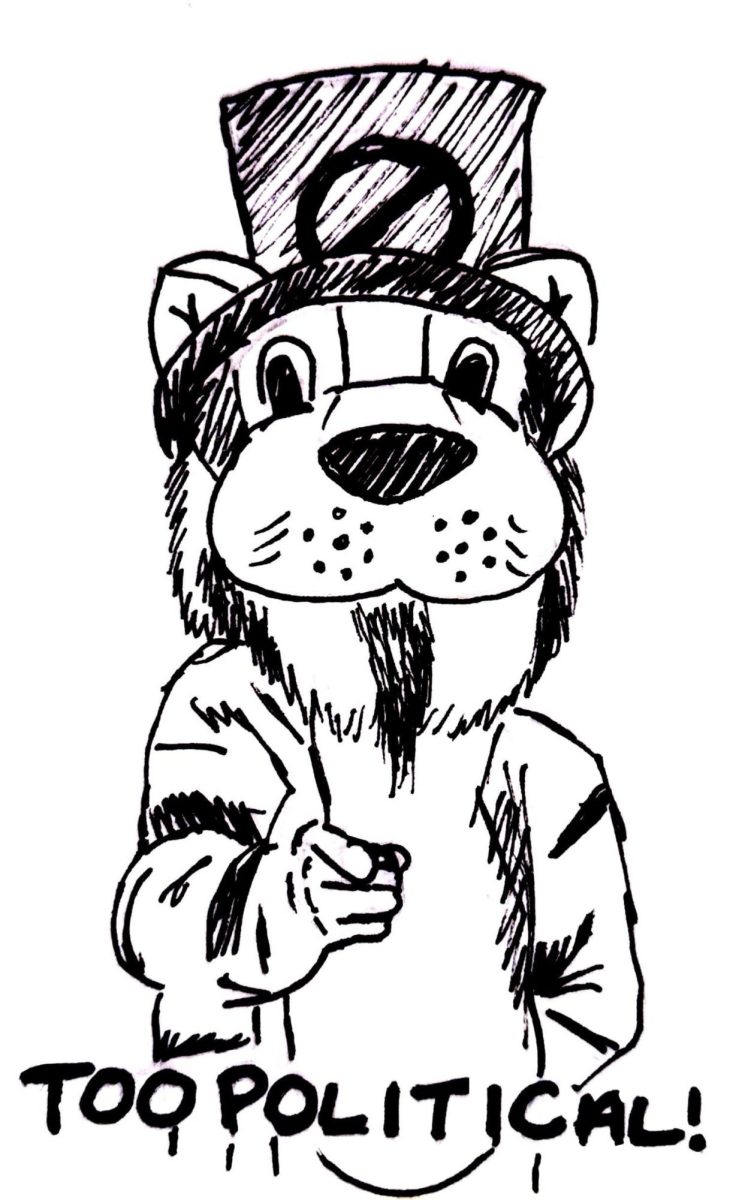Photo provided by Arianna Fletcher-Bai
The sun had already set by 6 p.m. on Thursday, Jan. 16, and an assortment of people gathered in the CSI atrium, waiting for the event to begin. This was a community event, judging by the differences in ages across the room. However, everyone mingled in anticipation of the night’s poetry and literature reading. Appreciation of the arts is often the one time that barriers are set aside, and the sight is wonderful. This celebration was about not just one fine art, but expression in general, culminating in Trinity’s newest literary magazine, High Noon, which curated its latest issue around “Difficult Conversations.”
The program begins with opening remarks from English professor Jennifer Bartlett, adviser of High Noon, and current editor-in-chief, senior Ari Fletcher-Bai. They are followed by two students from the magazine’s youth board, Aleena Ahmad and Celeste Walker. However, they are not Trinity students. They are both 14 years old and already doing work in the arts community through High Noon.
“Aleena reached out to us. We are so impressed by them, and they are working on expanding the youth board. In the spring semester, we’re really going to focus on that,” Fletcher-Bai said.
The two high school students were the talk of the event, with Walker reading “He Couldn’t Let Go” by Aidan Jaime.
Following Walker, Octavio Quintanilla read excerpts from his work. As the poet laureate of San Antonio from 2018–2020, having his name on the program and in the magazine was a huge deal for the publication, and in person his work was brought to life even more. The poetry he presented not only moved the audience through the written word, but also through drawings and Spanish-only media Quintanilla had been experimenting with.
Next was local poet Chuck Taylor, reading two of his poems, “Mad for Love” and “Love for Lucky You.” His more traditional medium and comforting rhyme scheme was different from Quintanilla’s edgy poems, but it turns out that the two were closer than anyone else in the room.
“One of the most random interesting things that happened was we published Octavio Quintanilla and Chuck Taylor completely separately, and it turned out that Chuck published Quintanilla’s first book of poems ever. That, to me, really speaks to the fact that writers need to be talking to each other,” Fletcher-Bai said.
The concept of writer collaboration is another aspect of High Noon that Fletcher-Bai hopes to continue into this semester.
“We’re the ones who are going to publish each other; we’re the ones who are going to fight for each other and understand the struggle that we all face. That community exists, and we always want to be trying to make more of those connections,” Fletcher-Bai said.
Sophomore Kaylee Avila elaborated on how the title of the publication, High Noon, also embodies the ideas that the magazine is working to uphold and foster.
“The name came about as a coming-of-age for the first issue. When the sun is at the peak in the middle of the day, at high noon, it’s at its brightest. It’s the idea that anyone can have a coming of age story at any age,” Avila said.
First-year Ruby Walker took the stage to read her poem “Dear Friend, I Can’t Tell You,” and told us her coming-of-age story, one that is still in progress.
“I wrote that piece while my best friend was lying in bed next to me, and it was a bunch of things that I wanted to say to her but couldn’t make myself form the words,” Ruby Walker said.
The last reading was an excerpt from Mandy Campbell’s “Death Survivor,” about living through mental health lows. It was amazing to hear such a vulnerable piece spoken aloud, and with so much passion, and that is another big part of High Noon. It focuses on difficult conversations, things that so many artists struggle with but have to express, and things that readers often try to ignore in their daily lives. This celebration was for a literary magazine that shared a wonderful gift with their readers: a safe place for discussion.
Yet, what’s a celebration without cake? In High Noon’s flyers for this event, they mentioned a “surprise involving cake,” and they delivered. The secret surprise turned out to be a real cake, modeled after an art piece featured on the back cover of High Noon.
For those interested in joining a literary publication that fosters a space of acceptance and compassion while also pursuing the growth of young and bright artists, High Noon is hiring.
To get in touch with High Noon about developmental editing or creating, email tuhighnoon@gmail.com and join in the continued growth of Trinity’s newest literary magazine.

